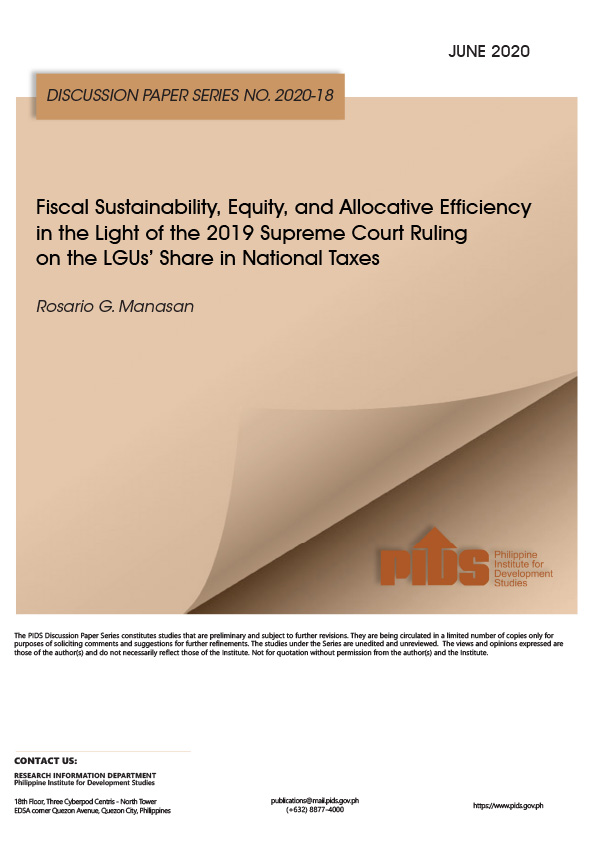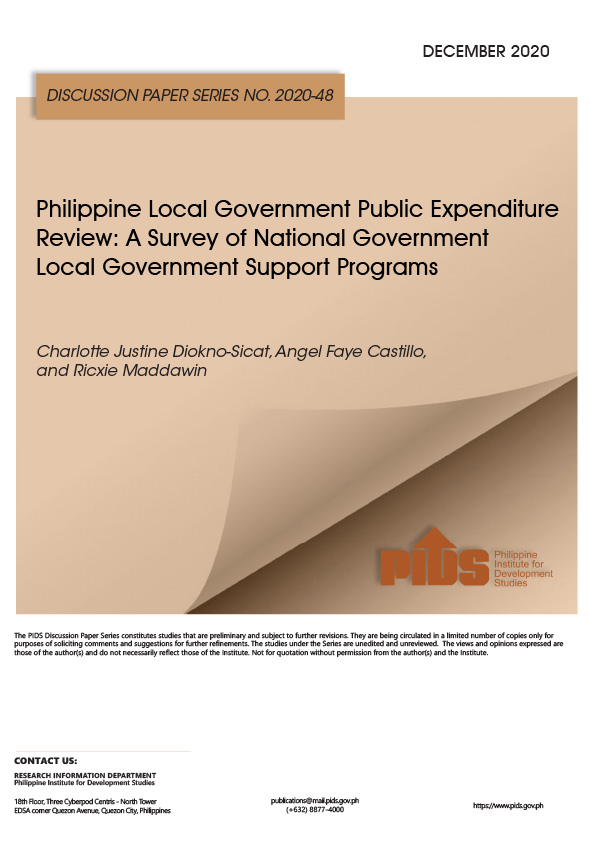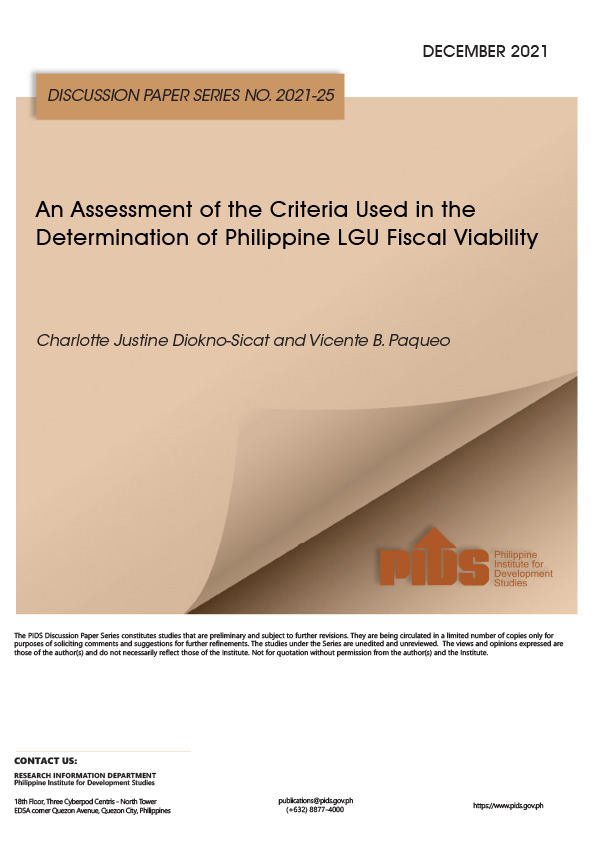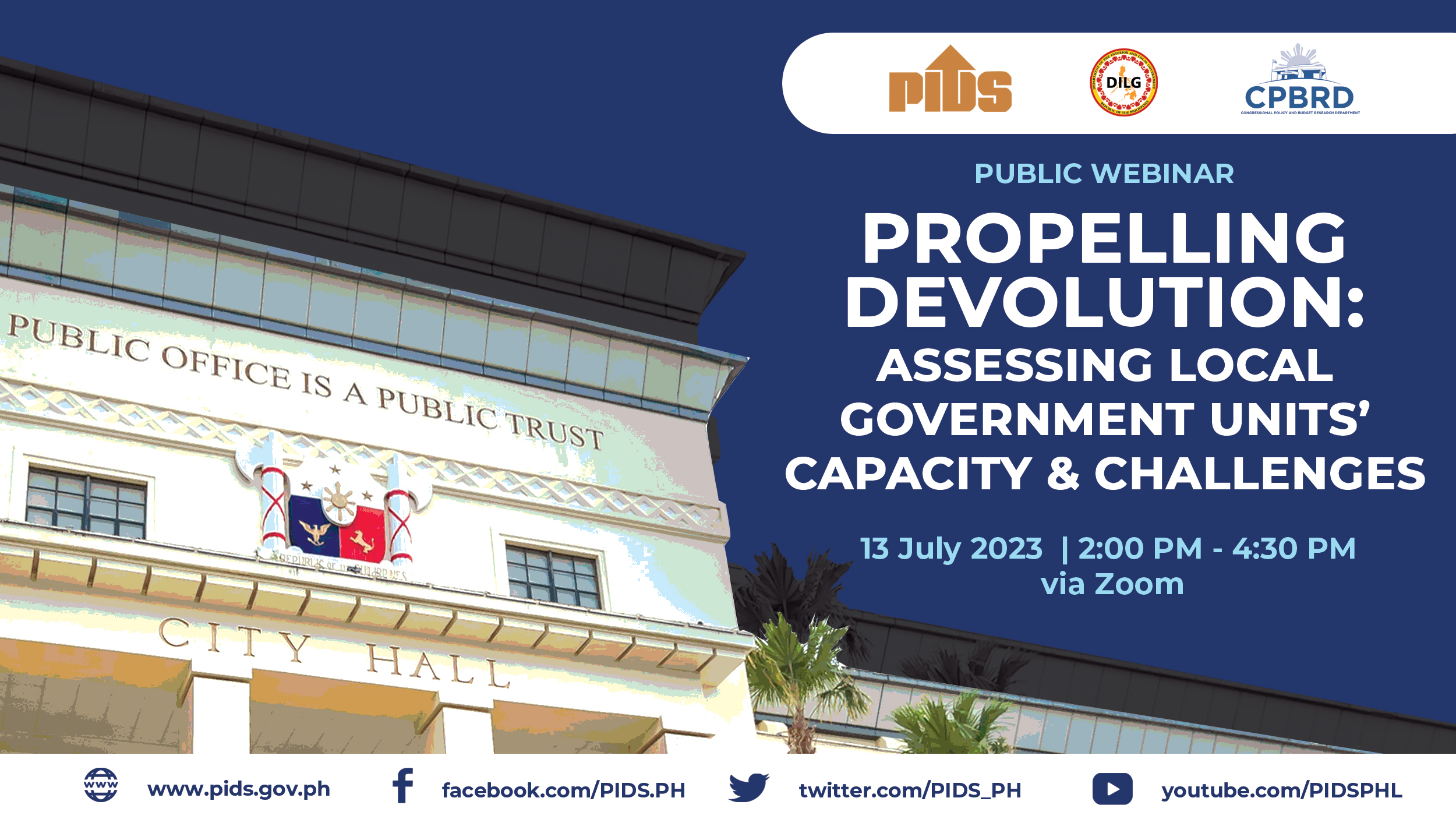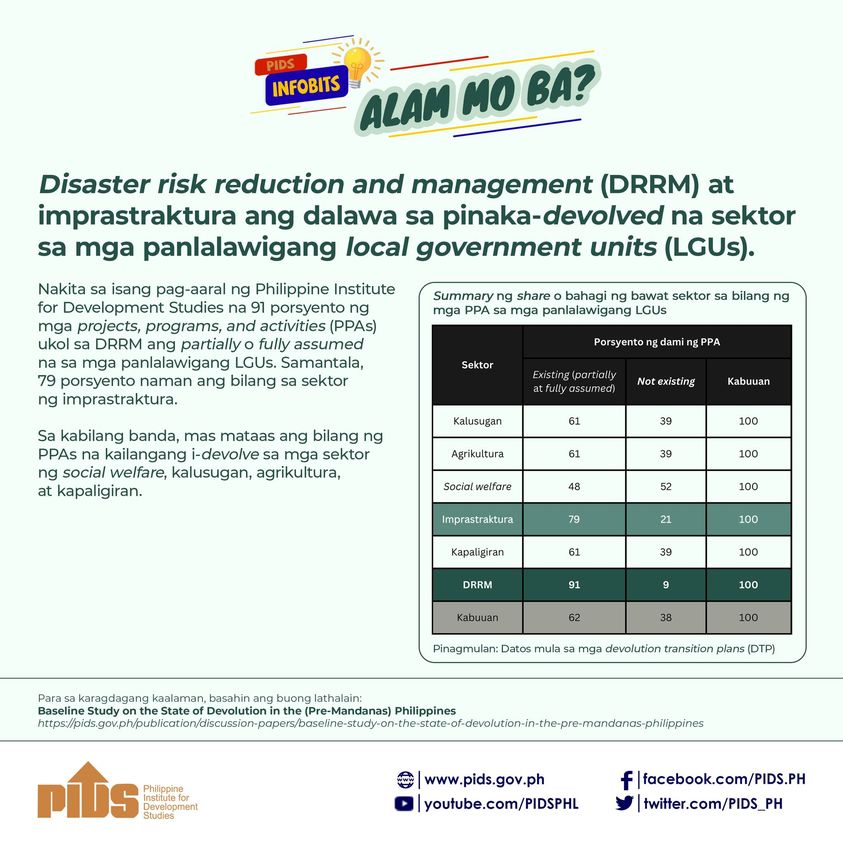
The level of fiscal readiness and financial capacity of local government units (LGUs) should be strengthened to achieve administrative and political autonomies.
This was according to Bureau of Local Government Finance (BLGF) Executive Director Niño Raymond Alvina, a discussant at a webinar recently organized by the Philippine Institute for Development Studies (PIDS) and the House of Representatives–Congressional Policy and Budget Research Department that featured a PIDS study on the fiscal viability of LGUs.
“It is very important that the foundations [are] strong in terms of the fiscal position and fiscal capacity of [LGUs]…to see to it that the devolved functions and services may be adequately delivered by the lower-[level] LGUs as part of the fiscal decentralization agenda of the government,” Alvina explained.
Meanwhile, Alvina also noted that LGU income is not a sufficient condition to ensure the delivery of devolved functions. Other factors must be considered, such as planning, capacity, and the supply and demand in the locality.
“We have seen some examples of these cases where provincial governments create barangays or regional governments create municipalities, but the services required for the people in the context of [the] subsidiarity principle could not be provided or adequately met,” Alvina said.
The BLGF executive director also underscored the importance of improving LGUs’ human resource complement. Citing the analysis of BLGF on the performance of LGUs from 2017 to 2019 in terms of their personal services (PS) limitations, Alvina shared that “some LGUs may be experiencing strain in their personal services.”
Based on BLGF data, Alvina said that on average, about 13 provinces, 20 cities, and around 560 to 570 municipalities experienced strain in their PS.
“While there may be accounting adjustments made later on these strains…for us, these signal that the creation of new and additional positions should consider the medium to long-term requirements of [those positions or offices], even for mandatory positions required by law,” he added.
Finally, on the PIDS study’s suggestion to consider imposing an income requirement for barangays, Alvina said the cost “need not be solely shouldered by barangays, but by higher-level LGUs and even the national government [as well]”.
He pointed out that this is because the purpose of creating barangays is to have more service delivery units and frontline government centers at the community level.
Alvina stressed that barangay treasurers need to be “capacitated and professionalized” and should have improved reporting accountabilities to ensure “adequate and granular local finance data on the ground”. ###
You may watch the webinar at https://fb.watch/bBfcE0tWui/ or https://youtu.be/jMAKYzPcV1g.
For more videos of PIDS events, go to https://www.pids.gov.ph/videos.

